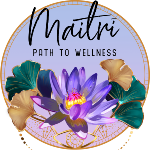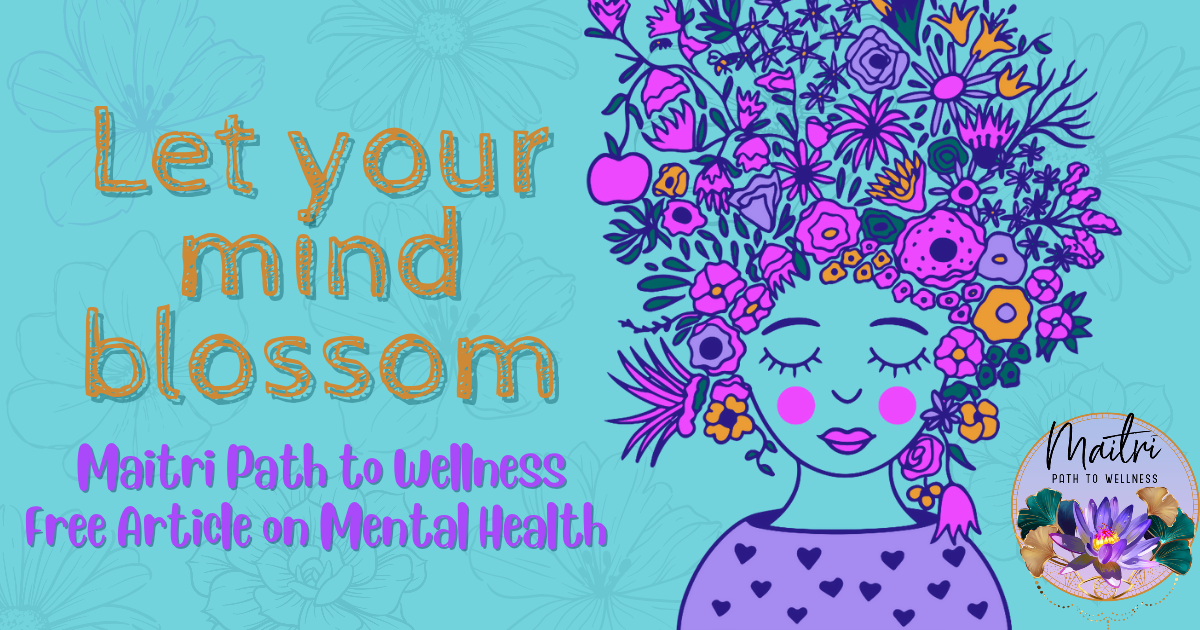Introduction
The 4th of July is a time of celebration, patriotism, and gathering with loved ones. However, for those on the path of sobriety, it can present unique challenges. The pressure to drink during holiday festivities, the presence of alcohol at gatherings, and the expectations of others can make staying sober a daunting task. But fear not! In this comprehensive guide, we will explore effective strategies and empowering tips to help you navigate the 4th of July while staying sober. Let’s redefine what it means to celebrate independence and embrace the freedom of sobriety.
Key Takeaways
- Understand the challenges of staying sober on the 4th of July
- Develop strategies for staying sober during festive gatherings
- Build a supportive network of loved ones and sober communities
- Prioritize self-care and coping mechanisms during the holiday season
- Communicate boundaries and advocate for yourself in social situations
- Embrace the freedom of sobriety and plan sober activities for Independence Day
Section 1: Understanding the Challenges
The Pressure to Drink on the 4th of July
The 4th of July is often associated with alcohol consumption, as societal expectations and cultural norms dictate that celebrations involve drinks. However, it’s essential to challenge this notion and recognize that sobriety can enhance the holiday experience. By reframing your perspective and focusing on the true meaning of independence, you can find joy in celebrating without relying on alcohol.
Dealing with peer pressure can be particularly challenging, as friends and family members may encourage you to have a drink. Remember that you have the power to make choices that align with your sobriety goals. Surround yourself with supportive individuals who respect your decision and understand the importance of your journey.
Overcoming FOMO (Fear of Missing Out) is another hurdle to navigate. It’s natural to feel a sense of missing out on the fun or camaraderie associated with drinking. However, by embracing alternative ways to celebrate, connecting with like-minded individuals, and focusing on the positive aspects of sobriety, you can overcome FOMO and fully enjoy the festivities.
Staying Sober During Festive Gatherings
Attending parties and barbecues during the 4th of July can be both exciting and challenging for someone in recovery. To stay sober, it’s crucial to have strategies in place. Firstly, consider picking the parties you attend carefully. Choose gatherings that are alcohol-free or where the focus is not primarily on drinking. Opt for events that align with your values and support your sobriety goals.
When navigating social interactions without alcohol, remember that you are not alone. Many others choose to abstain from drinking for various reasons. Engage in conversations that don’t revolve around alcohol, and take the opportunity to connect on a deeper level with friends and family. Focus on creating memorable experiences that go beyond the confines of alcohol.
Coping with triggers and temptations is a vital skill to develop during festive gatherings. Identify your triggers and plan ahead to mitigate their impact. Have alternative activities ready, such as playing games, dancing, or engaging in conversations that inspire and uplift you. By proactively managing triggers, you can protect your sobriety and enjoy the celebrations to the fullest.
Celebrate your Freedom from Substance Abuse
As you navigate the 4th of July, take a moment to celebrate the freedom you have gained from substance abuse. Reflect on your personal growth and the positive changes that sobriety has brought into your life. Embrace the joy of being present and engaging fully in the celebrations without relying on alcohol. This newfound freedom is something to be proud of, and the 4th of July is the perfect occasion to celebrate it.
Pick your Parties
Choose the parties and gatherings you attend mindfully. Prioritize events that align with your sobriety goals and values. Seek out alcohol-free or sober-friendly gatherings where you can fully enjoy the festivities without compromising your commitment to staying sober. By being selective about the events you participate in, you can create an environment that supports your sobriety journey.
Have an Exit Plan
Having an exit plan is crucial in situations where the presence of alcohol becomes overwhelming or triggers cravings. Identify an escape route or a trusted friend who can provide support if you need to leave a situation that threatens your sobriety. Remember, it’s okay to prioritize your well-being and remove yourself from environments that are not conducive to your recovery.
Utilize your Support System
Lean on your support system during the 4th of July celebrations. Communicate your intentions to your loved ones, so they understand the importance of your sobriety. Identify allies who respect and support your journey, and reach out to them for guidance and encouragement. Surrounding yourself with a supportive network can make all the difference in maintaining your sobriety on this holiday.
Practice Saying No
Saying no to alcohol can be challenging, especially when faced with persistent offers or questions. Practice assertive communication and have a firm response ready. You don’t owe anyone an explanation for your sobriety, but you can politely decline offers and assert your commitment to staying sober. Remember, saying no is an act of self-care and empowerment.
Section 2: Building a Supportive Network
Seeking Support from Loved Ones
Communicating your intentions to family and friends is essential for building a supportive network during the 4th of July celebrations. Express your decision to stay sober and the reasons behind it. Educate your loved ones about addiction and recovery, helping them understand the significance of your journey. Encourage open conversations about sobriety, allowing for a deeper level of understanding and support.
Identifying allies who respect your sobriety is crucial. Surround yourself with individuals who are understanding, non-judgmental, and supportive of your decision to stay sober. Seek out family members, friends, or even counselors who can offer guidance and be a source of encouragement throughout the holiday season.
Connecting with Sober Communities
In addition to your personal support network, connecting with sober communities can provide a sense of belonging and understanding. Join local support groups or recovery meetings specific to your area. These communities offer a safe space to share experiences, exchange advice, and find solidarity with others who are on a similar journey.
Exploring online sober communities and forums is another way to connect with like-minded individuals. Join virtual groups or participate in discussions where you can share your challenges, seek guidance, and offer support to others. These communities can be a valuable resource, especially during the 4th of July when you may benefit from additional encouragement and understanding.
Finding sober-friendly events and activities is an excellent way to engage with others who prioritize sobriety. Look for organized gatherings or sober clubs in your local area that host alcohol-free celebrations. Attending these events allows you to connect with individuals who share your commitment to staying sober, creating a supportive environment that fosters joy and camaraderie.
Section 3: Self-Care and Coping Mechanisms
Prioritizing Self-Care During the Holiday Season
During the holiday season, self-care becomes even more crucial. Engage in activities that reduce stress and promote well-being. Allocate time for self-reflection, journaling, or practicing mindfulness and meditation. Establish healthy routines that include regular exercise, adequate sleep, and a balanced diet. Prioritizing self-care enhances your overall resilience and ability to navigate challenges during the 4th of July celebrations.
Developing Effective Coping Strategies
Recognizing and managing triggers is a key aspect of staying sober during the holiday season. Identify situations, environments, or emotions that may trigger cravings or temptations. By being aware of these triggers, you can prepare yourself mentally and emotionally. Develop coping mechanisms that work for you, such as deep breathing exercises, engaging in a favorite hobby, or seeking support from your network. Finding alternative ways to celebrate and have fun can also be instrumental in diverting your focus away from alcohol.
Utilize coping mechanisms to navigate cravings when they arise. Distract yourself with activities that bring you joy or engage your mind and body. Practice self-compassion and remind yourself of the progress you have made on your sobriety journey. Reach out to your support system when cravings become overwhelming, as they can provide guidance, understanding, and encouragement during these challenging moments.
Practicing Relaxation Techniques
During the 4th of July celebrations, it’s essential to incorporate relaxation techniques into your routine. These techniques help alleviate stress and promote a sense of calm. Experiment with deep breathing exercises, progressive muscle relaxation, or guided meditation. Find what works best for you and dedicate time to practice these techniques regularly. By prioritizing relaxation, you provide yourself with a healthy outlet for stress and reinforce your commitment to sobriety.
Exploring Creative Outlets for Emotional Expression
Engaging in creative outlets can be therapeutic and empowering. Find ways to express your emotions and channel your energy into productive endeavors. Consider writing in a journal, painting, playing a musical instrument, or engaging in any form of creative expression that resonates with you. These outlets serve as powerful tools for self-reflection, emotional healing, and personal growth.
Section 4: Communicating Boundaries and Self-Advocacy
Setting Boundaries with Loved Ones
Communicating your boundaries regarding alcohol is crucial in maintaining your sobriety. Express your needs and limits assertively to your loved ones. Let them know what they can do to support you, such as refraining from offering you alcohol or not drinking excessively around you. Educate them about addiction and recovery, helping them understand the importance of your boundaries and the significance of respecting them. Emphasize that your decision to stay sober is personal and deserves their understanding and respect.
Dealing with potential conflicts and disagreements is a possibility when setting boundaries. Be prepared for different reactions from your loved ones. Stay firm in your decision and remind yourself of the positive impact sobriety has had on your life. Seek support from your support system or a counselor if conflicts arise. Remember, advocating for your boundaries is an act of self-care and empowerment.
Standing Up for Yourself in Social Situations
As you navigate social situations during the 4th of July, you may encounter questions or inquiries about your sobriety. Respond to these inquiries with confidence and grace. Keep your answers brief, honest, and non-confrontational. Share your personal reasons for choosing sobriety, the positive changes it has brought to your life, and the goals you’re working toward. However, it’s important to remember that you are not obligated to provide a detailed explanation. Your decision to stay sober is personal, and you deserve respect and support from others.
Overcoming judgment and stigma is a significant aspect of standing up for yourself in social situations. Unfortunately, not everyone may understand or support your sobriety journey. Stay strong and surround yourself with individuals who uplift and encourage you. Seek solace in your support network and communities that celebrate and embrace sobriety. By focusing on your progress and achievements, you can navigate social situations with confidence and pride.
Celebrating your progress and achievements is an essential part of self-advocacy. Acknowledge and honor the milestones you’ve achieved on your sobriety journey. Share your successes with your support system, celebrate your growth, and let these accomplishments serve as a reminder of the strength and resilience within you.
Section 5: Celebrating Sobriety on Independence Day
Embracing the Freedom of Sobriety
As you celebrate the 4th of July, embrace the freedom that sobriety offers. Reflect on your personal growth, the challenges you’ve overcome, and the positive changes sobriety has brought to your life. Take pride in the freedom from substance abuse and the clarity that sobriety provides. Embrace the joy of being present and fully engaged in the celebrations without relying on alcohol. This newfound freedom is a testament to your strength and resilience.
Reflecting on Personal Growth and Milestones
The 4th of July is an ideal time to reflect on your personal growth and milestones achieved on your sobriety journey. Celebrate the progress you’ve made and the positive changes you’ve experienced. Take time to appreciate the small victories, the lessons learned, and the personal transformations you’ve undergone. Use this reflection as motivation to continue on your path of sobriety with renewed determination and gratitude.
Finding Joy in the Present Moment without Substances
One of the beautiful aspects of sobriety is the ability to find joy and fulfillment in the present moment. Free from the haze of substances, you can fully immerse yourself in the celebrations, connecting with loved ones, and experiencing the holiday in its true essence. Engage in activities that bring you joy, whether it’s playing outdoor games, watching fireworks, or engaging in heartfelt conversations. Embrace the beauty of the present moment and savor the memories you create.
Planning Sober Activities and Traditions for the 4th of July
Creating your own sober activities and traditions for the 4th of July can be a meaningful way to celebrate while staying true to your sobriety. Consider organizing a sober gathering with like-minded individuals or participating in alcohol-free community events. Engage in activities that align with your values and interests, such as volunteering, attending outdoor concerts, or enjoying nature. By planning and participating in sober activities, you not only celebrate the holiday but also contribute to your personal growth and sobriety journey.
Conclusion
Staying sober on the 4th of July is a powerful choice that allows you to embrace the true essence of independence. By understanding the challenges, building a supportive network, prioritizing self-care, and advocating for your boundaries, you can navigate the holiday season with confidence and joy. Celebrate your freedom from substance abuse and create new traditions that embody the spirit of sobriety. Remember, the 4th of July is a celebration of independence, and staying sober is an empowering way to honor your personal freedom. Let this holiday be a testament to your resilience, strength, and commitment to a healthier and happier life.
FAQs
Are there any benefits to staying sober on the 4th of July?
Staying sober on the 4th of July offers numerous benefits. It allows you to fully experience and appreciate the holiday without the negative consequences of alcohol. You can engage in meaningful conversations, create lasting memories, and avoid the risks associated with impaired judgment and behavior.
How can I handle the pressure to drink during 4th of July celebrations?
Handling the pressure to drink can be challenging but not impossible. Firstly, communicate your decision to stay sober with confidence. Surround yourself with supportive individuals who respect your choices. Bring your own non-alcoholic beverages, focus on other enjoyable aspects of the celebrations, and have a plan for gracefully declining offers of alcohol.
What should I do if I feel triggered to drink around family and friends who are not sober?
Feeling triggered to drink around family and friends who are not sober is understandable. In such situations, prioritize your well-being by having an exit strategy if necessary. Engage in conversations or activities that don’t revolve around alcohol, and remind yourself of your commitment to sobriety. It can also help to discuss your concerns with a supportive friend or a professional counselor.
How can I find sober-friendly events and activities for the 4th of July?
Finding sober-friendly events and activities for the 4th of July is easier than you might think. Look for local community organizations, recovery groups, or sober clubs that organize alcohol-free celebrations. Check online directories or social media platforms for sober events in your area. Alternatively, organize your own gathering with like-minded individuals who prioritize sobriety.
What are some effective coping strategies to navigate cravings during the holiday season?
Navigating cravings during the holiday season can be challenging, but having effective coping strategies in place can help. Engage in physical activities like exercise or yoga to reduce stress and boost your mood. Find healthy distractions such as reading, listening to music, or practicing a hobby. Reach out to your support network when cravings arise and consider using techniques like deep breathing or journaling to manage your emotions.
How can I communicate my boundaries regarding alcohol with loved ones?
Communicating your boundaries regarding alcohol with loved ones requires open and honest communication. Clearly express your decision to stay sober and the reasons behind it. Let them know what they can do to support you, such as refraining from offering you alcohol or not drinking excessively around you. Emphasize the importance of their understanding and respect for your choices.
What are some effective ways to respond to questions about sobriety from curious individuals?
Responding to questions about sobriety from curious individuals can be done with grace and confidence. Keep your responses brief, honest, and non-confrontational. Focus on your personal reasons for choosing sobriety, the positive changes it has brought to your life, and the goals you’re working toward. Remember that you don’t owe anyone a detailed explanation; your decision to stay sober is personal and deserves respect.

Hey there friend! I’m Brenden Fasken, a passionate advocate for mental health and the transformative power of recovery. As a proud recovering addict, I’ve traveled the winding roads of addiction and emerged on the other side, ready to share my experiences and insights with you. I enjoy sharing blogs that delve into the complexities of mental health, substance use disorders, and the journey of personal growth. I aim to break down barriers, spark conversations, and offer a beacon of hope to those who may be struggling. So, join me as we embark on this empowering journey together, exploring the depths of our minds, celebrating resilience, and embracing the transformative potential within each of us.
Through my own recovery journey, I’ve learned that life’s challenges can be our greatest teachers. With each hurdle, I’ve gained insights and perspectives that have shaped my understanding of mental health and addiction. From the darkest moments to the brightest triumphs, I share personal anecdotes, reflections, and practical advice that I’ve gathered along the way. Together, we’ll navigate the labyrinth of emotions, challenge societal stigmas, and uncover the power of self-care and self-discovery. So, buckle up and get ready for an engaging and insightful ride as we explore the nuances of mental health and embark on a shared quest for personal growth and well-being.

